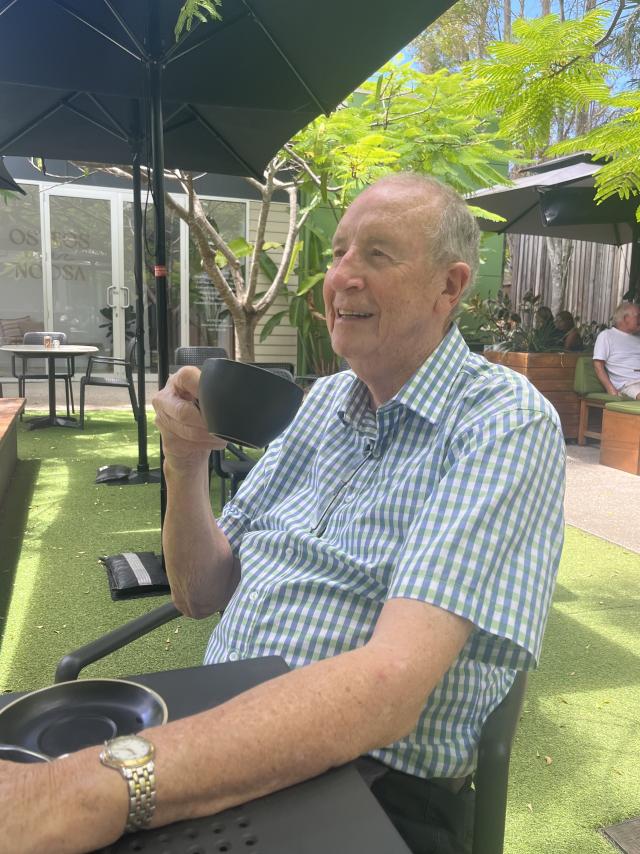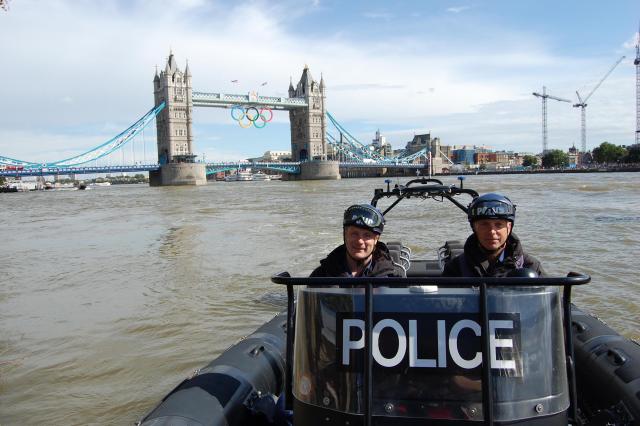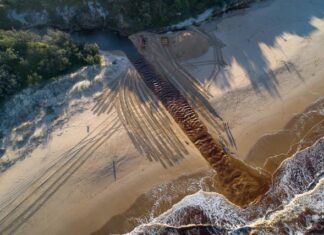When Tewantin octogenarian Maurie Hill made his submission to the recent Maritime Safety Queensland river management survey, its central point was the need for the highly visible presence of a respected person of authority on the water – “someone like a country cop or an English bobby”.
While some would argue that the upgraded presence of MSQ’s Tewantin base is designed to do just that, riverside resident Mr Hill begs to differ.
“No matter how many authorities we currently have who are responsible for the river, no one of them is really responsible for the river,” he says.
“Some might think they are, but they are leashed by the controls set up around them.”
Mr Hill freely admits that he has not been involved in any working groups on river issues, and that such ideas may have been canvassed before, but over a half-century career of problem solving in business, 25 years of river watching from his home and boating on all kinds of craft on river, lakes and estuary, the one-time school teacher has developed the strong belief that an “authoritative presence” is what is required, and, regardless of what people say, it is not being adequately provided.
“It’s like driving to Brisbane. If you know there’s a likelihood you’ll get pinged, you won’t speed.”
Mr Hill outlined his river supervisor concept in a letter to Noosa Today titled Policing the Noosa River: “It would be a relatively simple matter to develop an encompassing job description for this role; and I can see it as a highly satisfying position for one or more suitably mature, qualified, experienced and relationship orientated, supervisory officers.
“Two or even three part-time people could be employed for coverage and backup as required. The question of which authority they represent or report to or through, could surely be resolved. “Meaningful fines, if and where imposed, could contribute to costs.
“A permanent, impromptu hours, authoritative daylight presence on the river would service and support many of the current initiatives being proposed, be welcomed by most residents, river users and visitors alike and make a significant difference.”
While I saw all kinds of problems selling this to the authorities, starting with a cash-strapped council, I liked the simplicity of the river cop, although I also recognised that the appeal for those of us who grew up in the ‘40s or ‘50s and can recall the policeman’s boot up the backside, might not translate so well to Gen Xers, Gen Y, Millennials etc.
It was a simpler time. You mucked up, you felt the leather, and if you were really bad there’d be a knock on the door and mum and dad would hear all about it. I asked Maurie Hill to tell me more over a coffee.
The first thing I learnt from this affable and erudite Kiwi transplant was that the kite he is flying over the river is of massive proportions.
He explained the role as being ideal for “a suitably experienced and mature person, adequately equipped with an identifiable craft and certain authorities. I’m not sure of the title, but a person who takes an interest in all facets of the river, from ecological and the projects going on in relation to that, as well as the management of all things lakes, river and estuary.
“It needs to be a person or persons who is knowledgeable in these matters and believes in them. “The key word in all of this is ‘presence’, and that would mean becoming known and respected by all who use the river. I see that person as possible being semi-retired but active, with relationship skills.
“I see perhaps a research aspect, feeding information to the appropriate authorities. But also a point of contact for people on the river or alongside it who witness aberrant behavior, which is the norm in holiday periods.
“I don’t agree necessarily with all the rules and regulations on the river, seeing many idiosyncrasies and contradictions, but this person could be a point of reference on the spot.
“On the riverbank where we’ve lived for more than 20 years, we’ve had experience of river rats and drug dealers and many more, and there is only an authoritative presence on rare occasions, usually after it’s required. If this supervisor was to have the authority to intervene in such instances, that would be challenging in the formation of such an entity, but it could be done.”
The one-time chair of the Sunshine Coast Business Council also favours long-term planning to deal with population and congestion issues, not just on the river.
“Going back to my days on that council, I tried desperately to come up with a 25-year plan that factored in the population growth to 500,000 by 2035, but it became an impossibility because of vested interests,” he said.
“People seem to find it extremely hard to look that far ahead, but I come out of a different world where I can paint a picture of the future, and then work out how to get there. I call it winning the grand final. You set your goals and then you drag the team or community along with you.
“I’d like to see you invite the readers to imagine the future they’d like to see for the river.”
Maurie Hill happily admits that he’s “making it up as I go along”, but hopefully there are many more examples of such lateral thinking contained in the citizen submissions to the MSQ survey.
“It’s difficult for me to advocate this, because I believe in people working things out between themselves, rather than have some faceless authority do it,” Maurie said.
“And the country cop analogy might just be an old bloke living in the past, but I reckon that’s what we need on the river. Is it a pipe dream? You tell me.”









